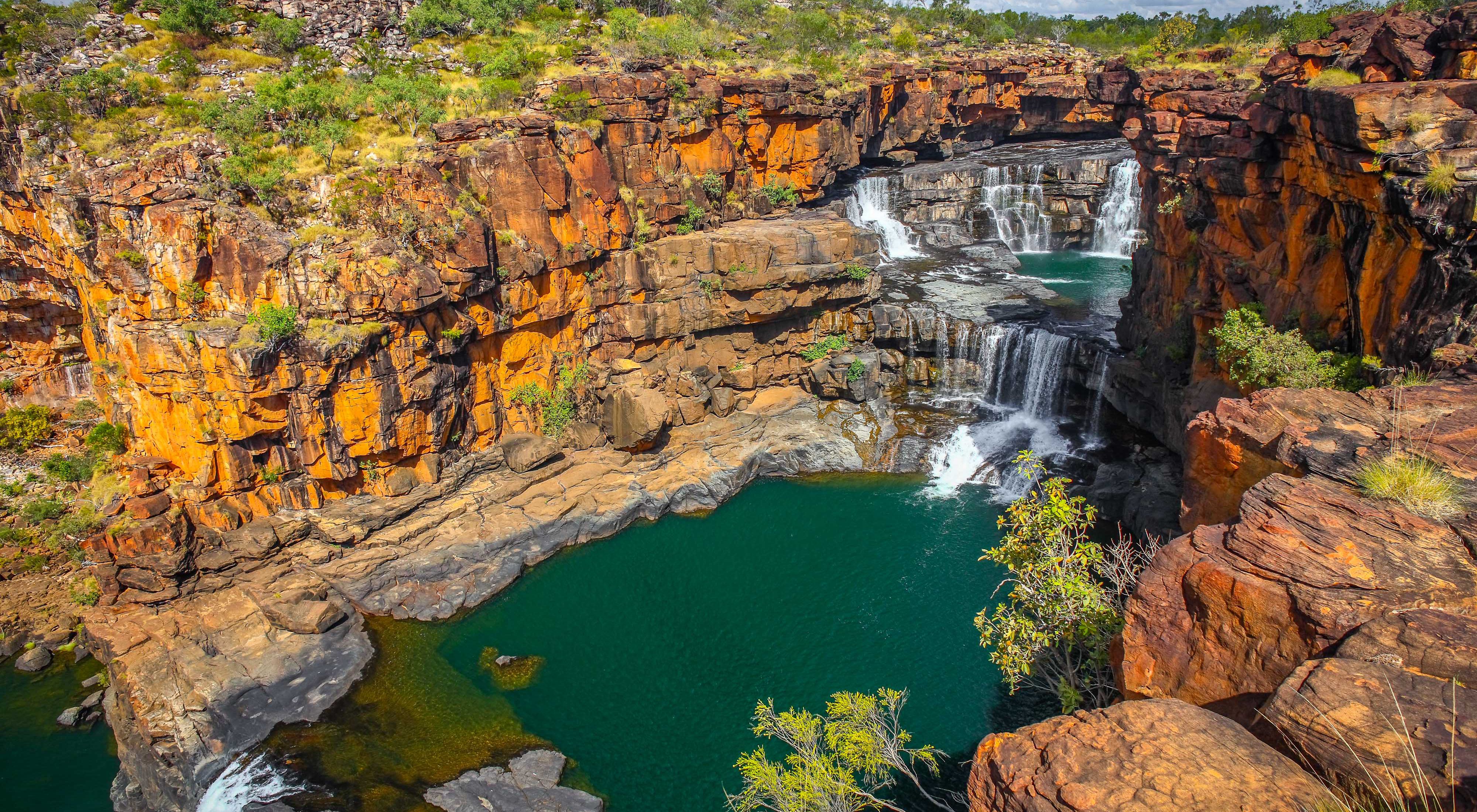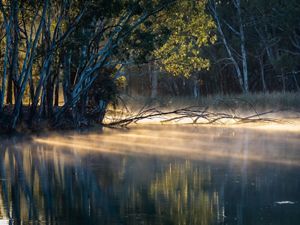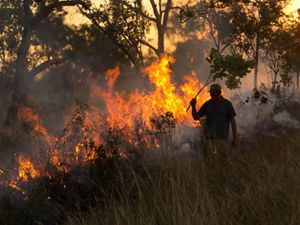With our expert team and support from donors, members, governments, the private sector and the general community, we’re getting on with the job of conserving the Australian environment for people and nature, for generations to come.
Home to kangaroos and koalas, devils and dingos, Australia is ancient and spectacular. Dazingly white beaches, mangrove marshes and rugged cliffs fringe this island continent of dramatic natural contrasts, including tropical rainforests, alpine snow fields and mighty deserts.
Reptiles, birds and plants in astonishing diversity render a walk through the Australian bush an unforgettable experience: the scuttle of a dragon as it flees from your approach, a kookaburra’s comical laugh and the comfortingly familiar smell of eucalyptus are all unmistakably “Aussie.”
These prehistoric landscapes, dating back 4 billion years, are home to some of the most intact and expansive natural environments left on earth. The world’s largest intact desert, largest intact tropical savanna and the largest temperate woodland are all Australian.
Well renowned for its unique wildlife, Australia is also home to the world’s oldest continuous human culture. For at least 65,000 years Aboriginal people have inhabited Australia, with a lifestyle inextricably linked to caring for the lands and waters that have provided for all of their needs.
But these astounding places and cultures are under threat. Climate change is warming the ocean, having a devastating effect on coral reefs and rainfall patterns. Introduced species like feral cats, foxes and camels are decimating native animals like parrots, bandicoots and quolls. And the decline of traditional Aboriginal land management has had a terrible effect on remote communities, with similar consequences for conservation.
But The Nature Conservancy is serious about arresting this decline by finding and implementing practical solutions that benefit both nature and people. Through our work in Australia we are:
- Combating climate change by helping Aboriginal communities manage fire on their lands to reduce greenhouse gas emissions on a massive scale;
- Controlling feral pests and researching ways to manage threatened species like the Greater Bilby in the presence of feral cats and camels;
- Helping Aboriginal people develop management plans for their country and securing its protection for conservation;
- Restoring the forgotten shellfish reefs of southern seascapes;
- Finding better ways to ensure freshwater for wetlands and agriculture in the country’s biggest river system, the Murray Darling Basin;
- Developed an urban forest strategy for Australia’s second-biggest city, Melbourne.
Visit our Australia website to learn more about The Nature Conservancy’s work in Australia.



